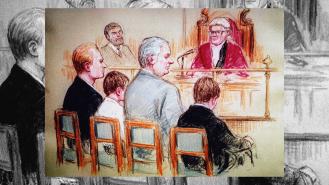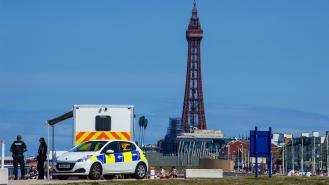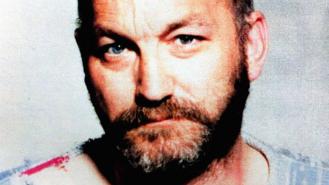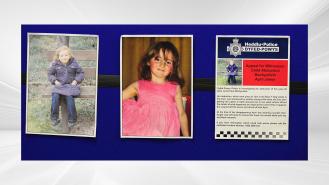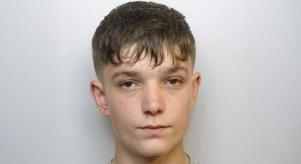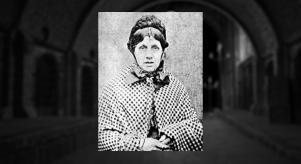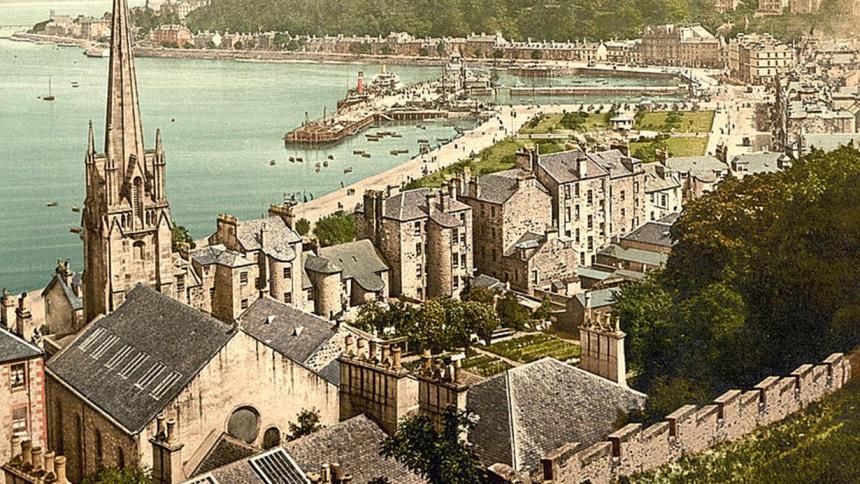
'She was the brightest thing': The murder of Alesha MacPhail
The Isle of Bute in Scotland has a population of around 6,500. The main town of Rothesay is linked to the mainland by a ferry and the main industries on the island are tourism and farming (Birmingham Mail, 2 July, 2018 – ‘First Picture of Girl, 6, Found Dead in Woodland’). Due to the small population, the Isle of Bute has a very close-knit community, one where many people feel safe enough to leave their doors unlocked. In 2018, however, the quaint island was rocked by an extremely barbaric murder, the after-effects of which still reverberate today.
It was around 6:25AM on the 2nd of July, 2018, when police in the Isle of Bute received a distraught phone call from Angela King, who informed them that her granddaughter, six-year-old Alesha MacPhail, was missing. That morning, Angela’s partner, Calum MacPhail, had awoken for work to find that Alesha was not in her bed, where she had been tucked up the night beforehand. As they waited for police to arrive, they searched underneath the beds in the home and in the cupboards before embarking on Alesha’s favourite play spots in the surrounding area.
At the time, Alesha was just three days into a three-week summer vacation visiting her relatives on the island. Alesha loved spending time on the Isle of Bute, especially going to the beach and the park. Her father, Robert MacPhail, lived on the island with his parents while her mother, Georgina Lochrane, lived in Airdrie, where Alesha had just finished P2 at Chapelside Primary School (Glasgow Times, 3 July, 2018 – ‘Family ‘Utterly Devastated’ as Police Launch Murder Investigation’) Her P2 teacher, Emma Gibson, described her as a bright and bubbly little girl who came to class each morning with a massive smile on her face. Alesha had loved working on her literacy and handwriting and she enjoyed performing in the school plays (Irish Times, 21 July, 2018 – ‘Alesha MacPhail Remembered at Funeral’).
Robert and Georgina’s relationship had broken down just months before Alesha was born. At the time of her disappearance, Robert had been dating 18-year-old Toni McLaclan. Alesha and Toni got on wonderful and Alesha had nicknamed her ‘Toto’ (Press Association Newswire, 12 February, 2019 – ‘Alesha MacPhail Murder Trial Hears of Frantic Search for Six-Year-Old’).
When the alarm was raised that Alesha was missing, an extensive search was immediately launched in an attempt to locate her, consisting of both police as well as concerned volunteers. Tragically, however, at around 9AM, the body of a young female child was found by a member of the public in woodland on the grounds of the former Cames Hydro Hotel located on the Ardbeg Road, Rothesay. The body would be positively identified as Alesha; she had been found nude with her pink polka-dot pyjama shorts and white vest found discarded a short distance away.
An investigation into the circumstances of her death was launched. During a press conference announcing the discovery, Detective Superintendent Stuart Houston would state that it was imperative that they uncover what happened to Alesha. He appealed to the public to come forward with any information which could assist in the investigation, appealing particularly to those who had been in the vicinity of Ardbeg Road (Glasgow Times, 2 July, 2018 – ‘Community Reacts with Shock’).
The following day, police would announce that they were investigating Alesha’s death as homicide. Her autopsy would confirm that she had been sexually assaulted and then smothered to death. Forensic experts were examining several locations in the area while police were conducting door-to-door inquiries and reviewing CCTV footage from both public and private CCTV cameras in the area surrounding Alesha’s grandparent’s home and the location where her body was found. Police would also appeal to the public, asking that if anybody had seen anything suspicious in the area to get in contact no matter how small or insignificant their information may seem.
The murder would come as a massive shock to the tight-knit community where news travels fast. ‘It’s frightening as I have two little girls too. I just didn’t think things like that happened here,’ said a woman to Glasgow Times, while a local who knew Alesha’s grandmother said: ‘The whole Island of Bute is in complete shock.’
Just two days after the grim discovery, the community would be aghast to learn that a teenage boy had been arrested in connection with Alesha’s murder. 16-year-old Aaron Campbell had been captured on his own mother’s CCTV as he came and went from his family home in the middle of the night before Alesha was reported missing. After police had appealed to the public to check their own surveillance footage, his mother contacted them in the hopes that the footage could eliminate her son from the investigation. However, it did quite the opposite. He was filmed as he came and went from his home several times in the early morning hours. On his final trip, he had removed items of clothing and retrieved a torch (Evening Standard
On the 21st of July, Alesha’s funeral was held at Coats Funeral Home in Coatbridge, North Lanarkshire. Mourners shuffled into the funeral home wearing pink which had been requested by the family. Loved ones of Alesha would pay tribute to the youngster through emotional speeches, including one from her uncle, Calum MacPhail, who said: ‘Alesha would rather hurt than you, she had a great amount of love for absolutely everybody. Alesha is everything I wanted to be; she was kind, caring, smart. I just cannot believe she is gone. She was the brightest thing…’ (Evening Standard, 22 February, 2019 – ‘Aaron Campbell Caught out by Own Mother’s CCTV’).
Outside the funeral home, bows were tied to railings and stuffed toys lined a wall. Her father, Robert, and uncle, Calum, were among those who carried her dainty pink coffin into the hearse which had been waiting outside. Mourners lined the street as the white carriage drawn by two horses transported Alesha’s coffin to Coltswood Cemetery where she was interred during a private burial.
A couple of weeks later, a candlelight vigil was held to honour the life of Alesha. Hundreds of locals on the Isle of Bute gathered at Guildford Square while people across the UK were encouraged to join in by lighting their own candle for Alesha and posting it on social media with the hashtag: #LightForAlesha. At Guildford Square, photographs of Alesha were lined up on the ground alongside candles (The Sunday Mail, 9 July, 2018 – ‘Hundreds of Locals on Bute Attend Emotional Candlelit Vigil in Memory of Tragic Alesha MacPhail’). Meanwhile, a fundraising page had been set up to support Alesha’s family through their unimaginable grief. In the space of just four days, it had swelled to over £9,000. The community had truly bounded together to offer support for the family, who had shown tremendous bravery and had every single aspect of their private lives scrutinized by the media.
Campbell would deny the abduction, rape and murder of Alesha and would be ordered to stand trial. He had attempted to blame the murder of Alesha on her father, Robert, and Robert’s girlfriend, Toni. Evidence would be presented in the form of DNA; traces found on Alesha’s neck, genital area, shorts and vest would come back as a match to Campbell. In a bid to explain the DNA evidence, Campbell would make the startling allegation that he had been intimate with Toni and she had planted his DNA to frame him. The details of the grisly murder were so horrific that members of the jury would be offered counselling services and would be told that they did not ever have to attend jury duty again if they did not wish to (Evening Standard, 21 February, 2019 – ‘Boy, 16, Found Guilty of Abduction, Rape and Murder of Six-Year-Old Girl on Isle of Bute’).
A timeline of events leading up to the murder would be revealed during trial. Robert would testify that in the past, he had sold cannabis to Campbell but stopped after being asked to by Campbell’s mother (Glasgow Times, 12 February, 2019 – ‘Alesha MacPhail’s Dad Admits to Selling Cannabis to Teen Accused of Killing his Daughter’). In the early morning hours before Alesha vanished, Campbell had been messaging him and asking him to sell him some. The text messages had been sent at around 1:39AM. However, Robert had been asleep at the time. At some point during the night, Campbell had snuck into the home that Robert lived with his parents with the motivation to steal cannabis. However, when he saw Alesha sleeping in her bedroom, he decided instead to abduct her.
Following a nine-day trial at the High Court in Glasgow and after just three hours of deliberation, a jury would find Aaron Campbell unanimously guilty of the murder of Alesha MacPhail.
After announcing the verdict, Judge Lord Matthews would tell Campbell that he had committed some of the ‘wickedest, most evil crimes this court has ever heard.’ Advocate Depute Iain McSporran, who had led the prosecution during the trial, would read excerpts from victim impact statements in which Alesha’s mother, Georgina, had said that she suffered horrific nightmares about what had had happened to her daughter and that her father, Robert, had experienced ‘insufferable pain.’ Outside of court, Georgina, would state that she was glad that justice was finally served and that she would miss her ‘wee pal’ forever.
After the guilty verdict, the judge would also approve an application from media outlets to lift a ban that had been in place on identifying Campbell. Up until this point, Campbell had not been identified in the media. Tony Graham, who was the lawyer representing several news organizations, said that it would be naïve to believe that Campbell’s identity was not known within the community as well as at Polmont Young Offenders Institute where he had been incarcerated. After he was publicly identified, he would confess to the abduction, rape and murder of Alesha, stating that when he saw her asleep in her bed ‘All I could think about was killing her’ (BBC News, 21 March, 2019 – ‘Alesha MacPhail Murder: The Schoolboy who Became an Opportunistic Killer’).
Aaron Campbell would be handed a life sentence with a minimum term of 27 years.
